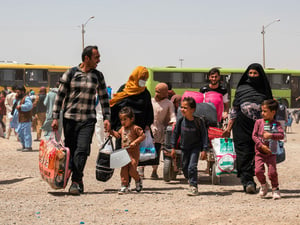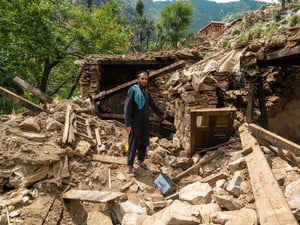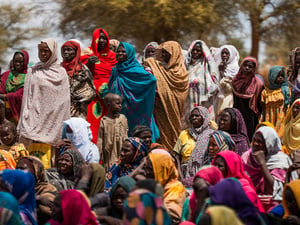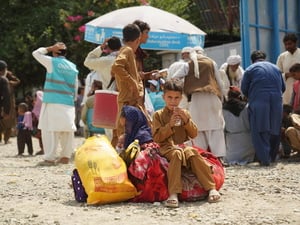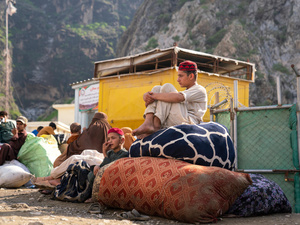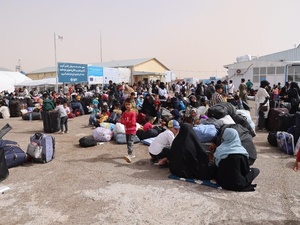Afghanistan: repatriation gathers pace
Afghanistan: repatriation gathers pace
Repatriation movements of Afghan refugees are gathering pace, with more than 320,000 Afghans back home with UNHCR assistance since 1 March from Pakistan, Iran, Tajikistan and Turkmenistan.
In less than two weeks, more than 15,000 Afghan refugees have repatriated from Iran under a programme in which UNHCR monitors the voluntariness of the movement and the government provides transport up to the frontier, where the International Organization for Migration (IOM) collects the Afghans and returns them to their home provinces. For the past three days, some 2,000 Afghans have been returning from Iran daily under the programme that began on April 9.
More than 302,000 Afghans have repatriated from Pakistan since 1 March under their own steam after registering at the UNHCR-run centres in the country. We've also had more than 8,900 returnees from the now-closed Tajik border camps, and 18 Afghans have repatriated with UNHCR assistance from Turkmenistan.
In Afghanistan, UNHCR is leading a nationwide effort to help thousands of Afghan internally displaced persons (IDPs) forced from their homes by decades of internal strife and famine to return home and start anew.
Monday saw the departure of the first IDPs from Bamyan City to Saighan district in central Afghanistan. A convoy of 12 minibuses and 14 trucks ferried 1,396 people to 13 villages in Saighan valley. Up to 7,500 IDPs are expected to return from Bamyan in the next eight days under a joint UNHCR-IOM programme.
Each returning family receives a tent, cooking and heating stoves, sweaters as well as seeds and tool kits.
Since December, the UN refugee agency has helped more than 25,600 IDPs return to their homes in Central and Eastern Afghanistan.
The UN refugee agency plans to assist the return and reintegration of some 400,000 IDPs in 2002. Afghanistan has more than 1.2 million IDPs.

